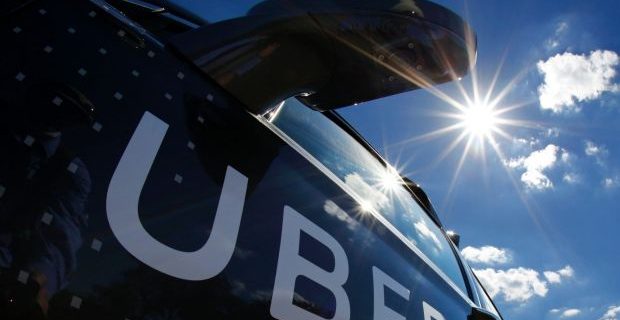Uber just lost a crucial court ruling – which might push up the price of a fare

So it turns out an Uber is actually a taxi – at least for tax purposes.
That’s the upshot of a Federal Court judgment handed down on Friday.
Uber had fought an 18-month battle to avoid GST, but will now need to work out how to apply the ruling to its 50,000-plus partner-drivers.
For the ride-sharing giant’s partner drivers, it will mean having to pay the 10 per cent GST tax on trips.
For governments, meanwhile, the decision means a tax windfall.
And, finally, for passengers, there is the prospect of potentially higher costs – if Uber decides to pass on the tax.
In July 2015, Uber launched legal action against the Australian Tax Office, challenging the office’s demand its drivers pay GST.
Threshold question
Enterprises that turn over less than $75,000 a year do not need to register to pay GST. Uber claims most of its drivers earn less than $20,000 a year.
However there is a specific exclusion – taxis. Taxi drivers have to pay GST no matter what they earn. The ATO had ruled Uber drivers were taxi drivers, meaning they were not exempt from the tax.
In court in July, Uber had argued it was not a taxi service, and therefore was exempt from GST.
Ubers couldn’t pick up passengers without a booking, nor could they use a taxi rank – and therefore they did not qualify as taxis, the company argued.
The Tax Office argued the legislation might say “taxi”, but really meant all vehicles that drove people from place to place for a fare. It quoted six dictionary definitions of the word taxi to argue that it was a broad term, rather than specific to yellow-painted cars with taxi meters.
No special meaning
In a ruling handed down on Friday Justice John Griffiths found that the word “taxi” should be given “their ordinary, everyday meanings and not a trade or specialised meaning”.
“The ordinary meaning of the word ‘taxi’ is a vehicle available for hire by the public and which transports a passenger at his or her direction for the payment of a fare,” Justice Griffiths wrote.
He also found a taxi did not need to have a taxi-meter, pick up fares without a booking or be able to use a taxi rank in order for it to be considered a taxi.
Costs were also awarded against Uber.
In a brief statement, Uber said it was disappointed with the court’s decision.
The taxi industry, who have seen much of their revenue eaten up by ride-sharing, welcomed the ruling.
“UberX drivers cannot expect to be treated as though they operate in a tax-free zone. They should pay tax just like their taxi driver counterparts,” Australian Taxi Industry Association chief executive Blair Davies said.
“There is nothing unfair about it. The ATO hasn’t singled out ride-sourcing drivers for extra or harsher treatment, it’s actually treating them exactly the same as everyone else who provides the same sort of personalised transport service.”
Source: The Sydney Morning Herald

























